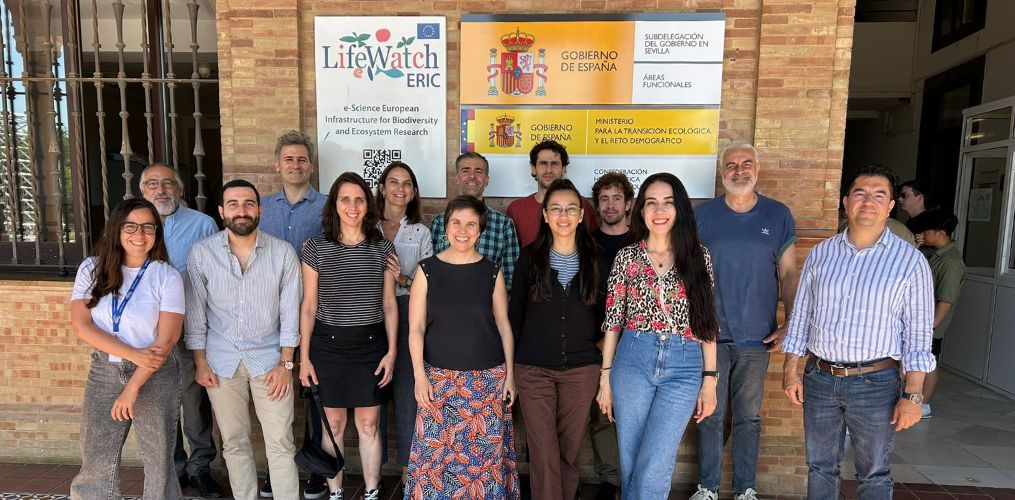
On 20 May 2025, the second day of the EULAC EnergyTRAN mobility event took place at the Statutory Seat of LifeWatch ERIC, located in Plaza de España in Seville, Spain. This initiative is part of the EU-LAC cooperation framework, aiming to strengthen scientific collaboration between European and Latin American research infrastructures, particularly in the environmental and energy transition domains.
The second day gathered a diverse delegation of Latin American representatives, including members of: Universidad Nacional de San Martín (UNSAM), Argentina (Julian Asinsten, Martin del Castillo, Lilia Inés Stubrin, Valeria Arza, Martin Obaya, Emanuel López), Tecnológico de Aguascalientes, México (Adrian Bonilla-Petriciolet, Didilia Ileana Mendoza-Castillo), National High Technology Center (CeNAT), Costa Rica (Jazmín Calderón Quirós), and LifeWatch ERIC team members (Francisco Manuel Sánchez, Antonio José Sáenz, Joaquin López, Julio López Paneque, Iria Soto, Ana Mellado, Maite Irazábal).
Throughout the day, participants from Latin America had the opportunity to engage directly with LifeWatch ERIC members and explore the organisation’s technological, analytical, and data management services. Sessions included:
- An overview of LifeWatch ERIC’s data management services and technological resources such as the Scientific Knowledge Graph, LifeBlock, and the MyLifeWatch platform;
- Demonstrations of data loggers and sensor networks for environmental monitoring;
- A detailed showcase of the collaborative research platform and analytical workflows developed within the EnergyTRAN project;
- Insightful presentations on the long-term sustainability of LifeWatch ERIC tools and their application in other European projects, such as AGROSERV and Microbes4Climate.
These in-person meetings are precious opportunities to cultivate openness and constructive dialogue, ensuring long-term international cooperation.
The event concluded with an exchange of ideas for future collaborations and opportunities, which are vital to sustain and expand the EU-LAC research partnerships and respond to shared challenges across regions.